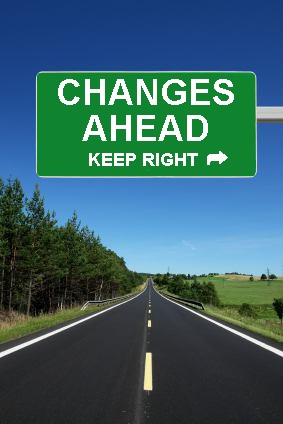Online Articles
Change Agents
 With every political election season come the debates between conservatives and liberals. Liberals attempt to sell their positions as progressive while describing their opponents' policies as archaic and inadequate to address present needs. Conservatives tend to appeal to foundational principles and proven methods while disparaging their opponents' ideas as harmful and dangerous. Most people quickly tire of all the inane rhetoric. Many are so disillusioned or apathetic that they don't participate in the political process at all—not even to cast a vote.
With every political election season come the debates between conservatives and liberals. Liberals attempt to sell their positions as progressive while describing their opponents' policies as archaic and inadequate to address present needs. Conservatives tend to appeal to foundational principles and proven methods while disparaging their opponents' ideas as harmful and dangerous. Most people quickly tire of all the inane rhetoric. Many are so disillusioned or apathetic that they don't participate in the political process at all—not even to cast a vote.
Of course, conservative and liberal attitudes are found in people's approaches to religion and Scripture as well. As with politics, many people have become so disillusioned by all the denominations and bad attitudes that they have stopped participating. This is the path of least resistance, so we should not be surprised that many choose this course.
Those who view themselves as progressive in their approach to Scripture will be quick to blame so-called conservatives and their intolerance of fresh ideas for being the cause of all of this discouragement. Meanwhile conservatives will blame the "change agents" that are infiltrating the churches for causing divisions and breeding discontentment.
The insufficiency and inaccuracy of most of these labels (liberal, conservative, progressive, anti or forbidding) should be evident by the simple fact that, depending on the issue being discussed, we would all find ourselves being labeled as each of these things at one time or another. These labels might be helpful shorthand when discussing a specific issue, but as a general label they are essentially worthless, misleading, or, worst of all, slanderous.
Take for example the term "change agents." Change is often viewed by those who fancy themselves as conservatives as being the goal of liberals. Yet change is a neutral word. It does not inherently mean digression any more than it means progression. Whether change is good or bad depends upon context and perspective.
This is so easily illustrated in current politics. Every two to four years we Americans change our government through elections. Sometimes that change is for the better, sometimes it is for the worse, depending on your political perspective.
As Christians, let's be careful about labeling those we think are simply wrong about something as "change agents," because change is not necessarily bad. Indeed, change is necessary more often than it is not since "all have sinned and fall short of the glory of God" (Rom. 3:23).
From the perspective of the Jewish leaders of His day, Jesus was certainly a "change agent" as He threatened the status quo (cf. Jn. 11:47,48). Indeed, as His disciples it is our calling to be agents of change since our Lord has commissioned the making of disciples (a change from not being disciples) by calling on all to repent (change) (Lk. 24:47; Ac. 2:38). When this was faithfully carried out, it produced significant change in turning the world upside down (Ac. 17:6).
To pejoratively label as change agents those who are teaching or practicing differently than we teach or practice sounds arrogant, as if our way is the standard and that the way we have always done things is right and we are in no need of change. Hopefully, we have not come to see ourselves or our history as our own standard. If so, we are very much in need of some Christ-like change agents among us.
When we simply use clichéd jargon to demonize those we believe to be a negative influence, we actually hurt our cause for doing what is right and making an effective change for the better. Certainly, we must oppose those who adulterate the pure gospel of Jesus Christ, but we cannot do so by simplistically labeling them as "change agents" without condemning the very thing we are trying to be—agents of change "in a crooked and perverse generation, among whom you shine as lights in the world" (Phil. 2:15).




